
The Enchanting Charm of Paramaribo: Suriname's Cultural Jewel
Paramaribo, the capital city of Suriname, is a vibrant blend of cultures, history, and natural beauty. Nestled on the banks of the Suriname River, this UNESCO World Heritage Site is known for its well-preserved Dutch colonial architecture, which gives the city a unique and picturesque charm. Walking through the streets of Paramaribo, tourists will be captivated by the wooden buildings with their intricate designs, colorful facades, and historical significance. Beyond its architectural allure, Paramaribo offers a rich cultural experience. The city is a melting pot of ethnicities, including Creole, Indian, Javanese, Chinese, and Maroon communities, each contributing to the diverse cultural tapestry. Visitors can explore bustling markets, vibrant festivals, and sample an array of delicious local cuisine influenced by the various cultures. Don't miss out on trying the famous roti or a traditional Javanese dish like saoto soup. Nature lovers will find Paramaribo equally enchanting. The city is surrounded by lush rainforests, offering numerous opportunities for eco-tourism. Take a boat trip along the river to spot exotic wildlife, visit the nearby Brownsberg Nature Park, or simply relax in one of the city's beautiful parks. Whether you're a history buff, a foodie, or an adventurer, Paramaribo has something to offer everyone.
Local tips in Paramaribo
- Explore the historic inner city on foot to fully appreciate the unique architecture and cultural landmarks.
- Visit the Central Market early in the morning for the freshest produce and a lively atmosphere.
- Take a sunset river cruise to enjoy stunning views and spot local wildlife.
- Respect local customs and dress modestly when visiting religious sites.
- Try the diverse local cuisine; don’t miss out on dishes like roti, pom, and saoto soup.
- Carry insect repellent when exploring outdoor areas to avoid mosquito bites.
- Learn some basic Dutch phrases as they can be handy in communicating with locals.
The Enchanting Charm of Paramaribo: Suriname's Cultural Jewel
Paramaribo, the capital city of Suriname, is a vibrant blend of cultures, history, and natural beauty. Nestled on the banks of the Suriname River, this UNESCO World Heritage Site is known for its well-preserved Dutch colonial architecture, which gives the city a unique and picturesque charm. Walking through the streets of Paramaribo, tourists will be captivated by the wooden buildings with their intricate designs, colorful facades, and historical significance. Beyond its architectural allure, Paramaribo offers a rich cultural experience. The city is a melting pot of ethnicities, including Creole, Indian, Javanese, Chinese, and Maroon communities, each contributing to the diverse cultural tapestry. Visitors can explore bustling markets, vibrant festivals, and sample an array of delicious local cuisine influenced by the various cultures. Don't miss out on trying the famous roti or a traditional Javanese dish like saoto soup. Nature lovers will find Paramaribo equally enchanting. The city is surrounded by lush rainforests, offering numerous opportunities for eco-tourism. Take a boat trip along the river to spot exotic wildlife, visit the nearby Brownsberg Nature Park, or simply relax in one of the city's beautiful parks. Whether you're a history buff, a foodie, or an adventurer, Paramaribo has something to offer everyone.
When is the best time to go to Paramaribo?
Iconic landmarks you can’t miss
Palmtree Garden
Explore the lush beauty of Palmtree Garden in Paramaribo, a serene urban oasis filled with nature, sculptures, and relaxation opportunities.
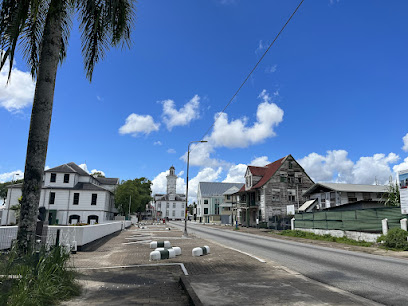
Fort Zeelandia
Explore the rich colonial history of Suriname at Fort Zeelandia, a captivating museum showcasing artifacts and stunning river views.
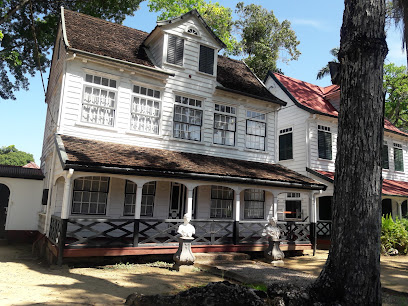
Paramaribo Zoo
Explore the enchanting Paramaribo Zoo, a family-friendly destination showcasing Suriname's rich wildlife and biodiversity in a beautiful setting.
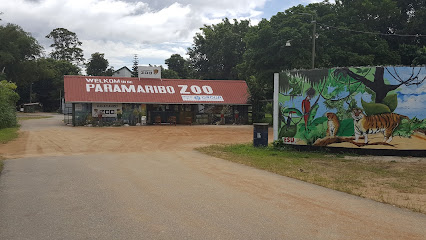
Zus & Zo
Discover the vibrant flavors of Suriname at Zus & Zo, a culinary haven in Paramaribo that delights every palate.
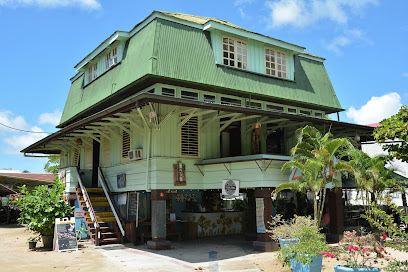
Paramaribo Central Market
Explore the vibrant Paramaribo Central Market, a colorful hub of local produce, crafts, and culinary delights in the heart of Suriname's capital.
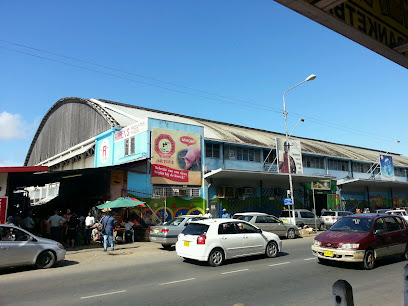
Saint-Peter-and-Paul Basilica of Paramaribo
Discover the stunning beauty and rich history of the Saint-Peter-and-Paul Basilica, a wooden architectural wonder in Paramaribo, Suriname.
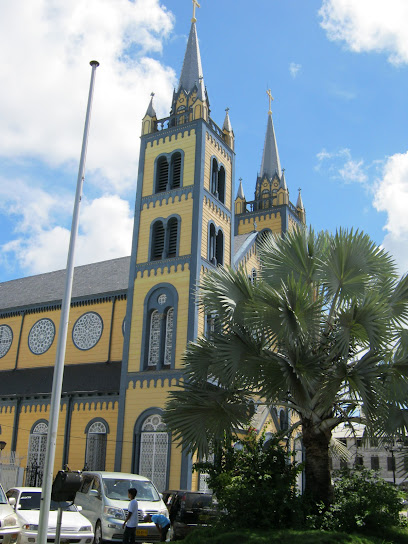
Peperpot Nature Park
Discover the tranquil beauty of Peperpot Nature Park, a nature preserve in Suriname perfect for hiking, wildlife watching, and immersing in lush tropical landscapes.
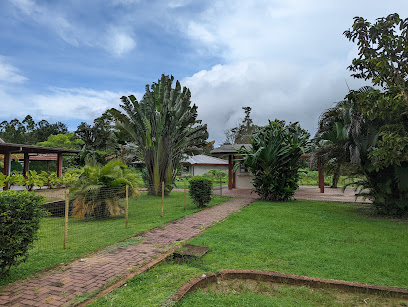
Jules Wijdenbosch Bridge
Discover the breathtaking views and engineering marvel of the Jules Wijdenbosch Bridge in Paramaribo, Suriname, a must-visit tourist attraction.
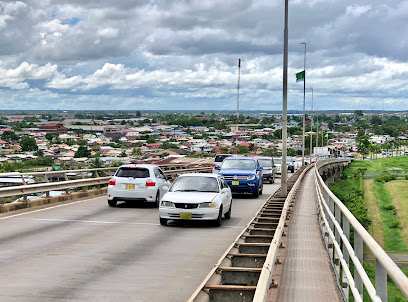
Presidential Palace
Explore the grandeur and history of the Presidential Palace, a stunning monument reflecting Suriname's rich heritage and architectural beauty.
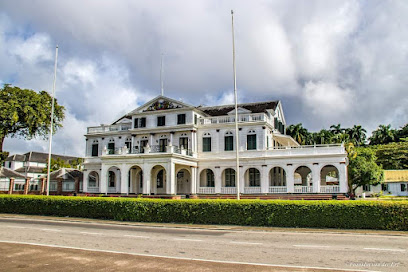
Jenny Tours
Uncover the beauty and culture of Suriname with personalized tours from Jenny Tours, your local travel agency in Paramaribo.
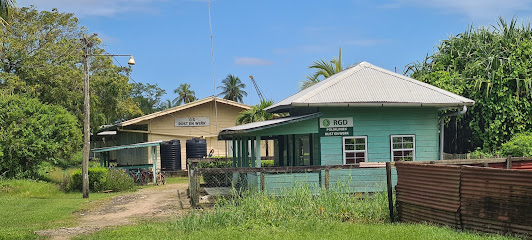
Het Koto Museum
Explore the essence of Surinamese culture at Het Koto Museum, a heritage museum dedicated to the traditional Koto dress and its rich cultural significance.
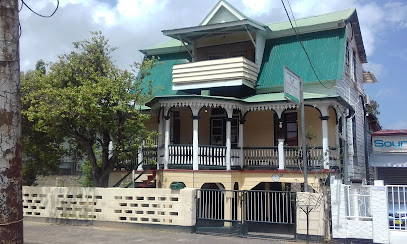
Neveh Shalom Synagogue
Discover the rich Jewish heritage at Neveh Shalom Synagogue, a historic gem in the heart of Paramaribo, Suriname.
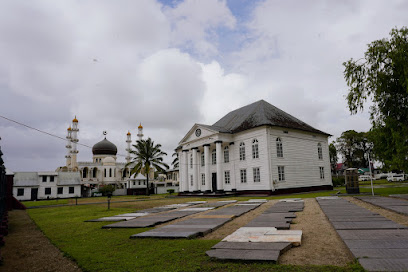
Arya Dewaker Mandir
Discover the spiritual heart of Paramaribo at Arya Dewaker Mandir, a stunning Hindu temple showcasing vibrant architecture and rich cultural heritage.
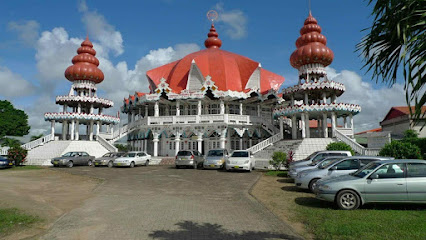
Neotropical Butterfly Park
Explore the stunning biodiversity of the Neotropical Butterfly Park, a must-visit garden and tourist attraction in Suriname.
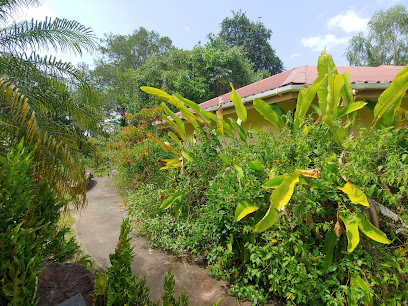
André Kamperveen Stadion
Discover the vibrant sports culture at André Kamperveen Stadion in Rainville, Suriname, where local passion meets thrilling athletic events.
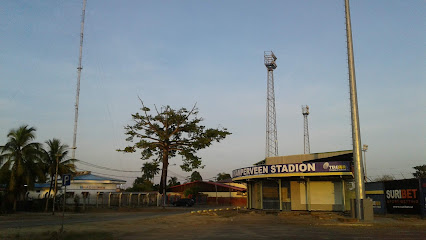
Unmissable attractions to see
Palmtree Garden
Explore the serene beauty of Palmtree Garden, a lush park in Paramaribo, perfect for relaxation and cultural experiences amidst vibrant flora.
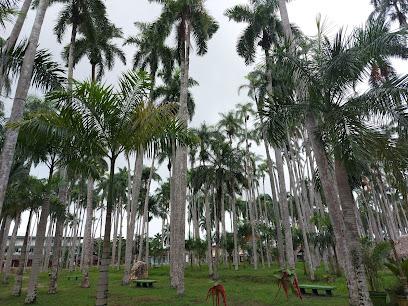
Fort Zeelandia
Explore Fort Zeelandia, a historical gem in Paramaribo, Suriname, showcasing rich colonial history and stunning waterfront views.
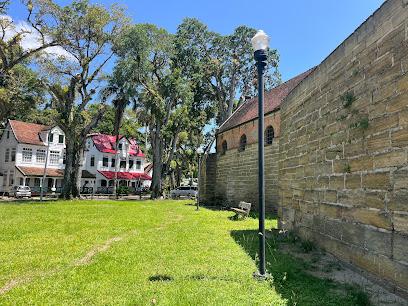
Saint-Peter-and-Paul Basilica of Paramaribo
Experience the enchanting blend of history and architecture at the Saint-Peter-and-Paul Basilica in Paramaribo, a must-visit for your Suriname adventure.
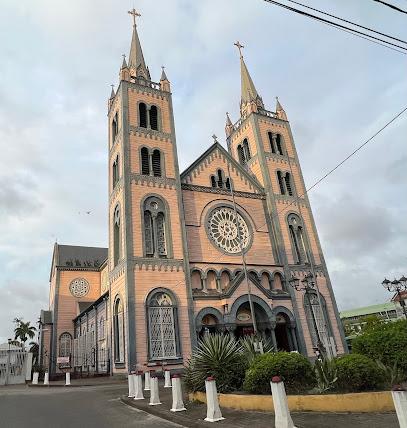
Orange Travel N.V.
Discover Suriname's hidden gems with Orange Travel N.V., your trusted travel partner in Paramaribo for unforgettable adventures.
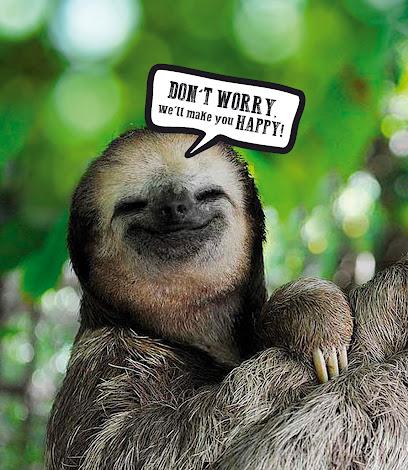
Colakreek
Experience the natural beauty and recreational charm of Colakreek, a serene oasis in Zanderij, Suriname, perfect for relaxation and adventure.
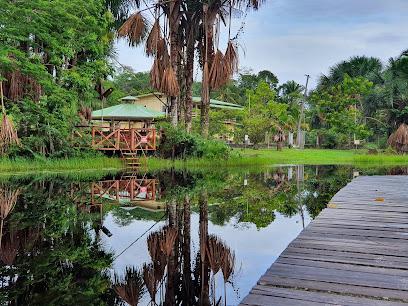
Riverside
Discover the best of Surinamese grill cuisine at Riverside, a vibrant bar and grill along the beautiful Suriname River in Paramaribo.
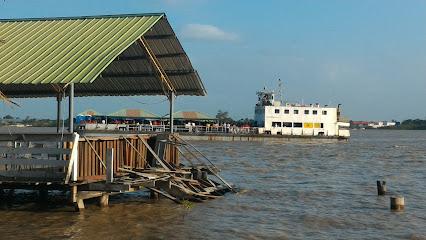
Peperpot Nature Park
Experience the serene beauty of Peperpot Nature Park, a nature preserve in Suriname filled with diverse wildlife, lush landscapes, and rich history.
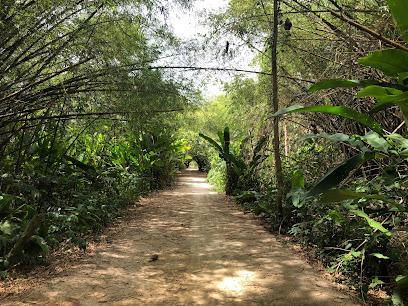
Jules Wijdenbosch Bridge
Discover the enchanting Jules Wijdenbosch Bridge, a stunning architectural feat in Paramaribo, offering breathtaking views and a taste of Surinamese culture.
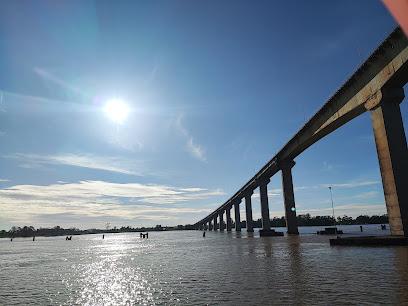
S.I.V. Mosque
Experience the architectural beauty and spiritual essence of S.I.V. Mosque, a cultural gem in the heart of Paramaribo, Suriname.
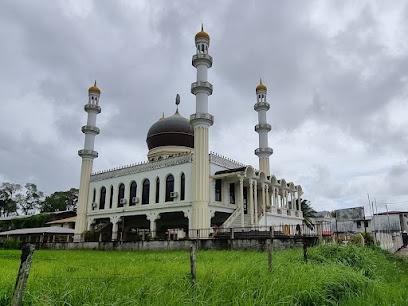
Neveh Shalom Synagogue
Explore the Neveh Shalom Synagogue, a remarkable symbol of Jewish heritage in Paramaribo, Suriname, showcasing stunning architecture and rich history.
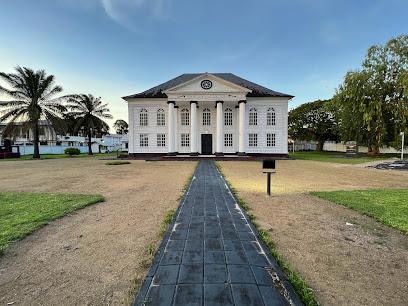
Neotropical Butterfly Park
Explore the vibrant world of butterflies at Neotropical Butterfly Park, a stunning garden in Lelydorp, Suriname, offering unforgettable experiences for nature lovers.
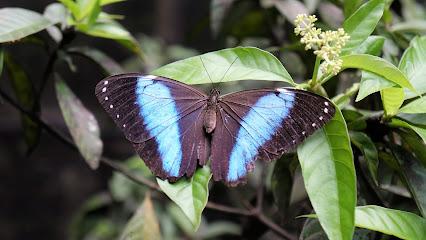
Neotropical Butterfly Park
Explore the Neotropical Butterfly Park in Suriname, a vibrant sanctuary showcasing the beauty of butterflies in a lush, tropical garden setting.
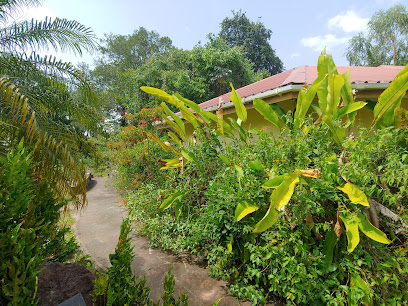
Cultuurtuin
Explore the lush beauty of Cultuurtuin, a tranquil park in Paramaribo, offering a perfect escape into nature and a glimpse of Surinamese culture.
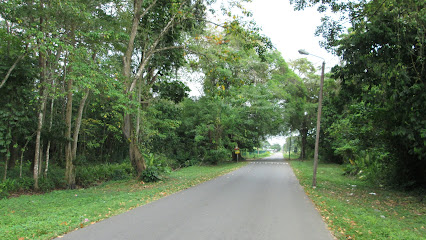
Mariënburg Sugar Mill
Explore the Mariënburg Sugar Mill, a historical gem in Suriname showcasing the art of sugar production and its cultural significance.
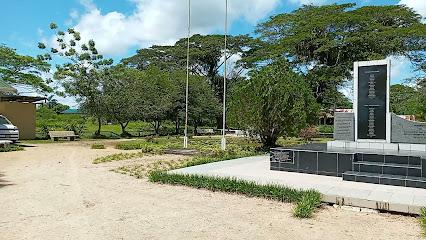
Para Flor
Immerse yourself in the beauty of nature at Para Flor Botanical Garden, a tropical paradise in Suriname with diverse flora and serene landscapes.
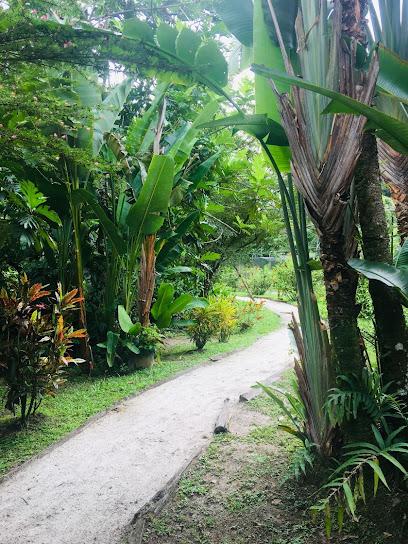
Essential places to dine
Chi Min
Experience authentic Chinese cuisine at Chi Min in Paramaribo - where every bite tells a story of flavor and tradition.
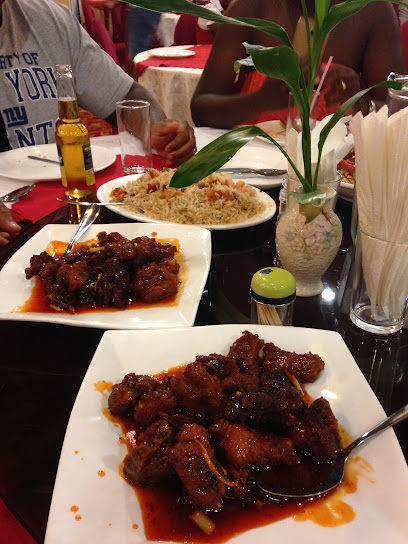
Zus & Zo
Discover exquisite local and international cuisine at Zus & Zo in Paramaribo - where every meal is a celebration of flavor!
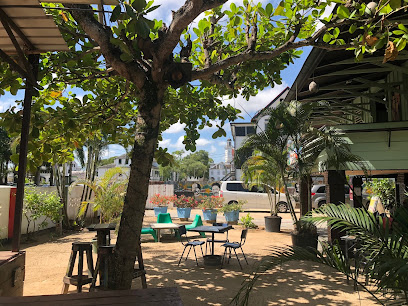
The Coffee Box South
Experience the best of local coffee culture at The Coffee Box South in Paramaribo - where flavor meets community.
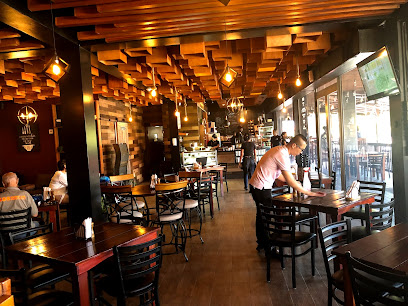
Restaurant Sarinah
Experience authentic Indonesian cuisine at Restaurant Sarinah in Paramaribo – a culinary delight that captures the essence of Indonesia's rich flavors.
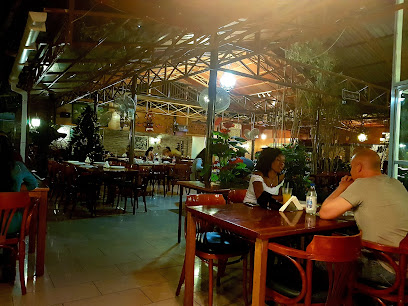
Las Tías Suriname
Discover the authentic taste of Latin America at Las Tías Suriname in Paramaribo—where every meal is a celebration of flavor.
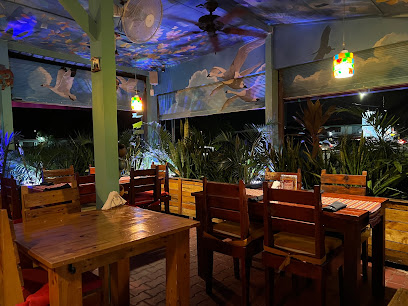
Garden of Eden
Experience authentic Thai cuisine in Paramaribo at Garden of Eden - where exotic flavors meet warm hospitality.
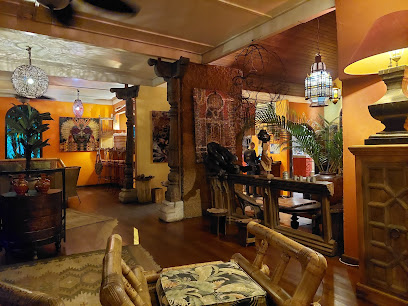
SOUPOSO
Experience authentic Surinamese cuisine at SOUPOSO in Paramaribo - A culinary journey through vibrant flavors and rich culture awaits.
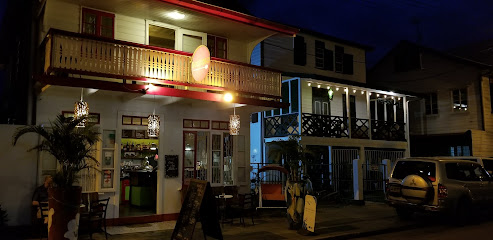
Mirosso
Experience authentic Indonesian cuisine at Mirosso in Paramaribo – where vibrant flavors meet warm hospitality.
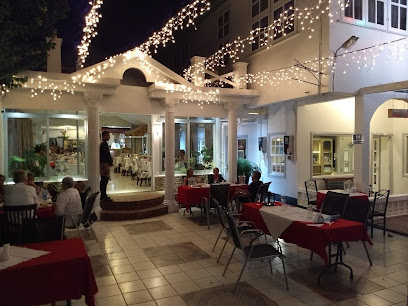
De Gadri
Experience authentic Surinamese flavors at De Gadri in Paramaribo - where every dish tells a story.
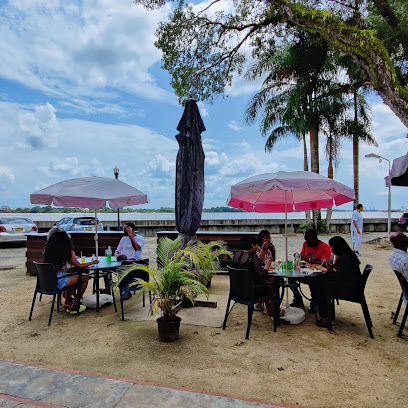
Lucky Twins Restaurant
Experience authentic Chinese flavors at Lucky Twins Restaurant in Paramaribo - where every dish tells a story.
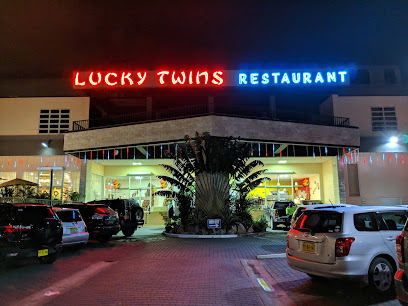
Sushi-Ya
Experience authentic sushi at Sushi-Ya in Paramaribo - where tradition meets fresh ingredients for an unforgettable dining experience.
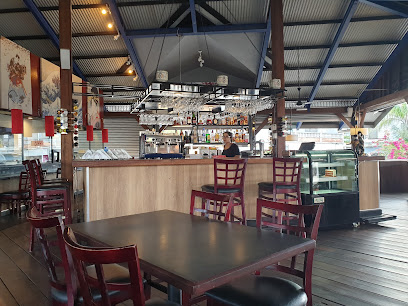
Roline's de Waag
Discover Roline's de Waag in Paramaribo: where delicious tapas meet vibrant live music by the beautiful waterside.
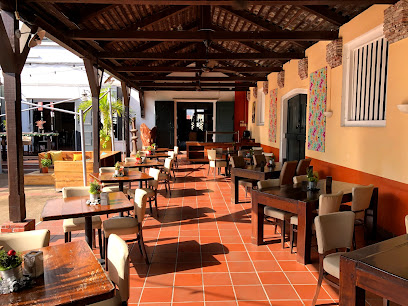
Martin's House of Indian Food
Experience the vibrant flavors of India at Martin's House of Indian Food in Paramaribo – where every dish tells a story.
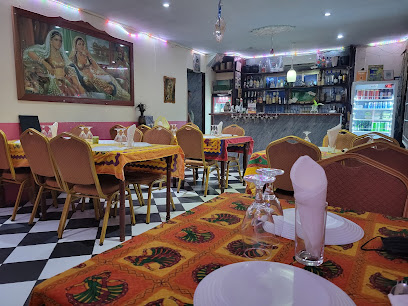
Roti Shop Joosje
Experience authentic Surinamese flavors at Roti Shop Joosje in Paramaribo – home to delicious rotis and vibrant local culture.
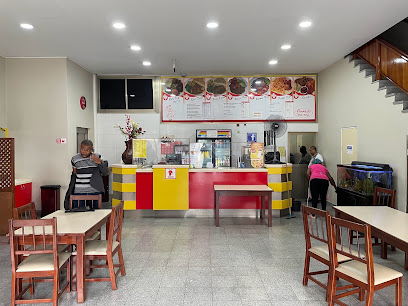
Moments
Experience authentic Surinamese flavors at Moments Restaurant in Paramaribo—where culinary tradition meets modern dining.
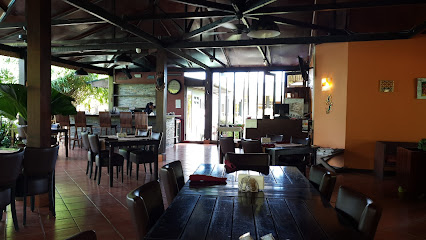
Markets, malls and hidden boutiques
Hermitage Mall
Experience the vibrant shopping culture of Paramaribo at Hermitage Mall, where diverse stores and delightful dining await every visitor.
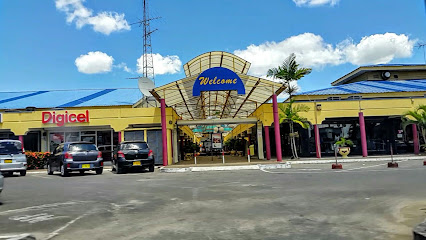
Lucky Store
Explore Lucky Store in Paramaribo, your go-to destination for unique home goods and memorable souvenirs from Suriname.
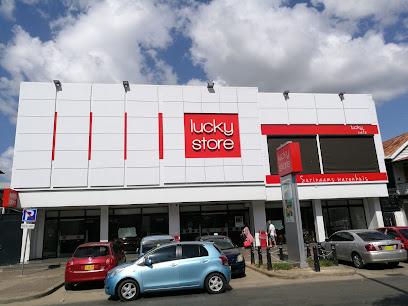
Amada Shopping
Explore the vibrant shopping experience at Amada Shopping in Paramaribo, where local culture meets international retail.
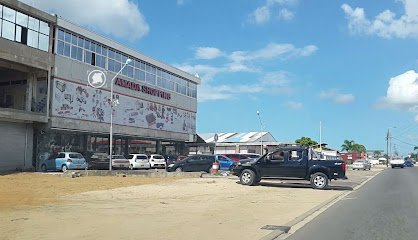
Beyrouth Bazaar & Co. N.V.
Explore the vibrant Beyrouth Bazaar & Co. N.V. in Paramaribo for a unique shopping experience filled with local crafts, souvenirs, and more.
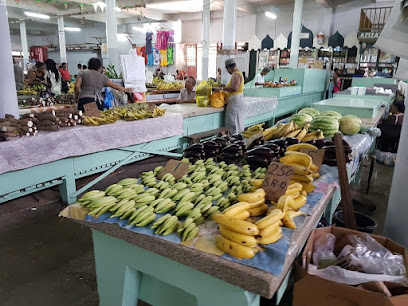
Palak Fashion
Explore the vibrant styles of Suriname at Palak Fashion, a boutique offering personalized service and unique clothing that reflects local culture.
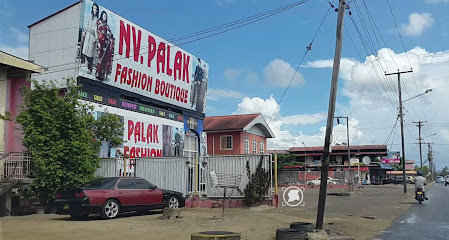
Ying Hao Beauty Shop
Explore the latest fashion trends at Ying Hao Beauty Shop in Paramaribo, where style meets affordability in a vibrant shopping atmosphere.
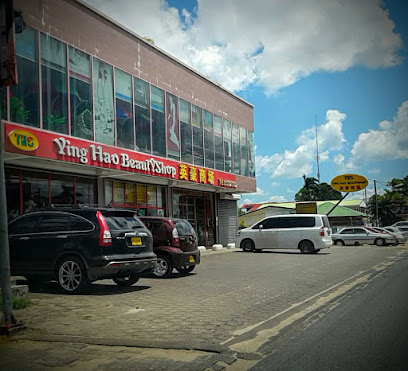
La belle Giftworld
Explore La Belle Giftworld in Paramaribo for unique souvenirs, local crafts, and a taste of Suriname's vibrant culture!
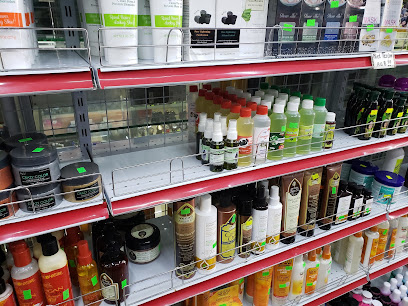
Red Century Party Shop
Discover the ultimate destination for party supplies at Red Century Party Shop in Paramaribo, where every celebration comes to life with vibrant decorations.
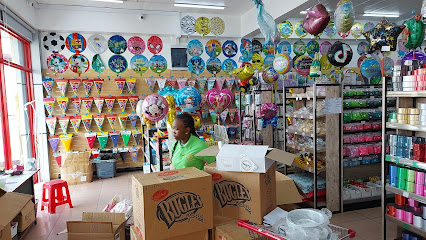
Talking Prints
Explore the unique artistic treasures at Talking Prints, a vibrant store in Paramaribo showcasing Suriname's rich cultural heritage.
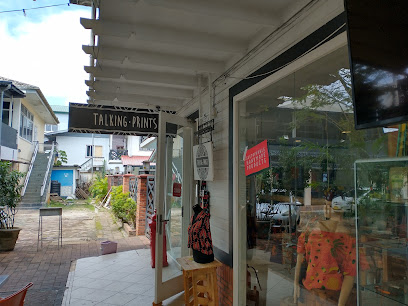
Unique Supermarket
Explore the vibrant flavors of Suriname at Unique Supermarket, where local ingredients and international products come together in Paramaribo.
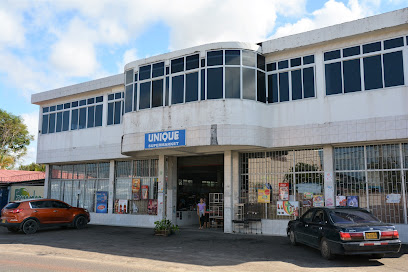
Cute as a Button
Explore a delightful range of quality baby products at Cute as a Button in Paramaribo, perfect for families and unique gifting.
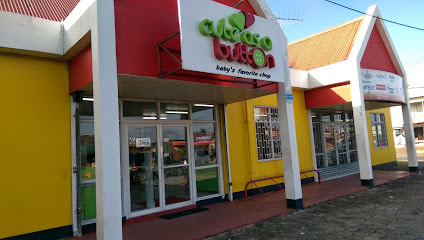
Boutique Vanessa
Boutique Vanessa: A Stylish Haven in Paramaribo for Unique Fashion and Local Treasures.
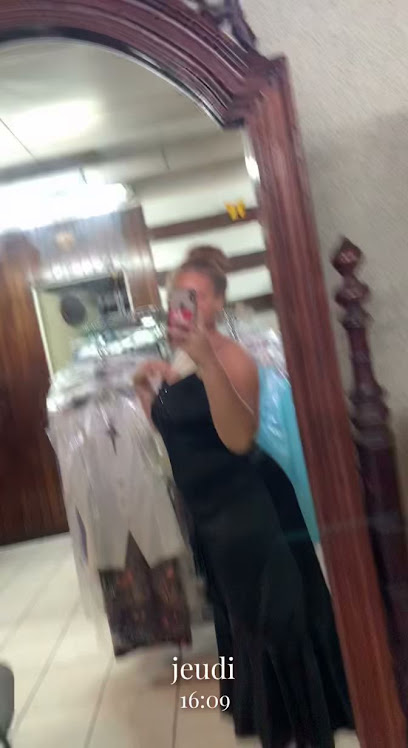
Fashion Store
Explore the vibrant styles and unique designs at Paramaribo's Fashion Store, a must-visit for trendy clothing and local fashion.
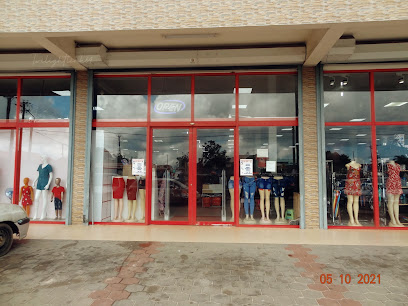
Julie's Giftshop
Explore Julie's Giftshop in Paramaribo for unique handcrafted souvenirs and local art that beautifully reflect Suriname's vibrant culture.

Cube anime store
Immerse yourself in the captivating world of anime at Cube Anime Store, where fans find a treasure trove of collectibles and merchandise in Paramaribo.

Essential bars & hidden hideouts
Mighty Racks
Discover a culinary delight in Paramaribo at Mighty Racks, where exquisite grilled dishes meet an inviting atmosphere, perfect for any food lover.
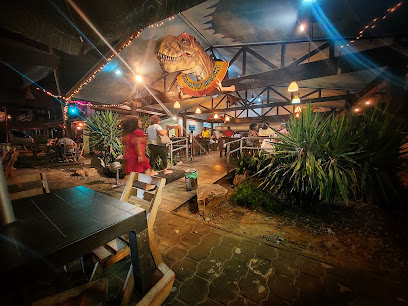
De Gadri
Discover the vibrant flavors of Surinamese cuisine at De Gadri, a must-visit restaurant in Paramaribo offering authentic dishes and a warm atmosphere.
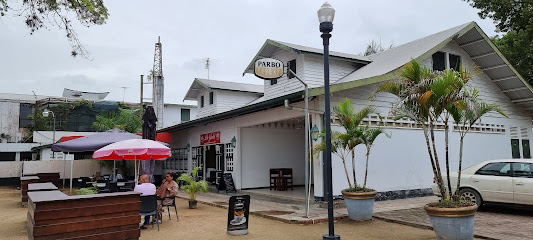
Bar Zuid
Experience the vibrant nightlife at Bar Zuid in Paramaribo, where local flavors meet lively ambiance for an unforgettable evening.
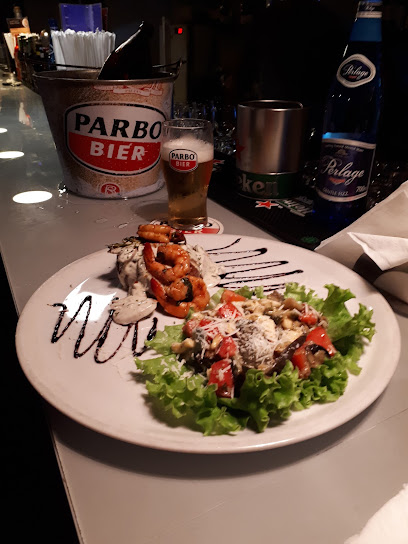
Roline's de Waag
Discover the vibrant fusion of local cuisine and live music at Roline's de Waag, a cultural gem along Paramaribo's scenic waterside.
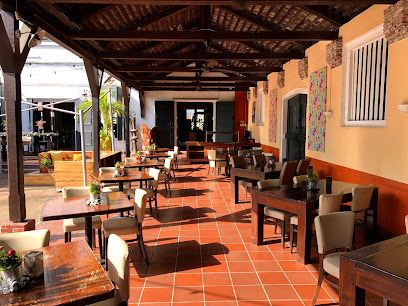
Riverside
Experience the best of Surinamese grill cuisine at Riverside, where every meal is a celebration of flavor by the water.
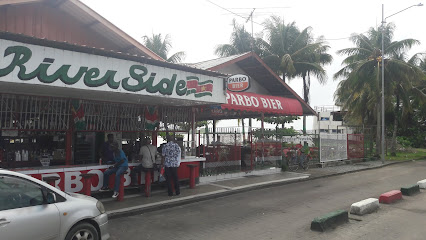
Mingle Paramaribo
Discover the lively Mingle Paramaribo, where delightful cuisine meets refreshing drinks in a vibrant lounge setting.
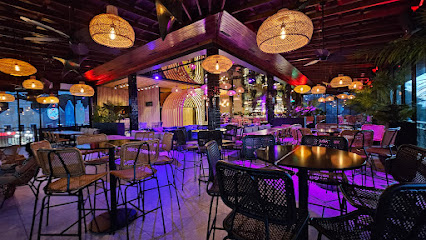
D'Bar
Experience the vibrant nightlife at D'Bar in Paramaribo, where great cocktails and local culture meet in a lively atmosphere.
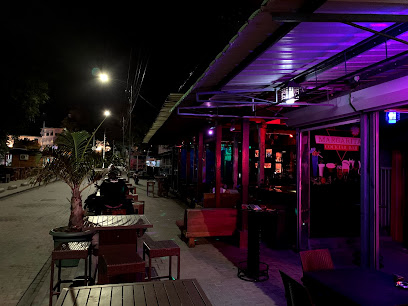
Bar Bizar
Experience authentic Surinamese cuisine at Bar Bizar, a vibrant restaurant in the heart of Paramaribo, perfect for food lovers and cultural explorers.
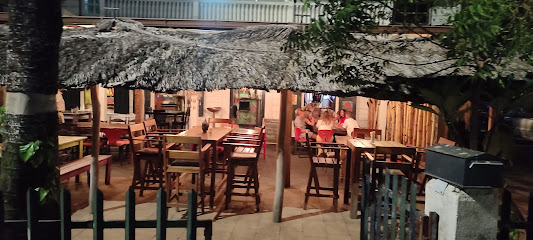
The Old Garage
Discover the lively vibe of The Old Garage, a premier bar in Paramaribo offering a unique atmosphere and diverse drink selections for an unforgettable night out.
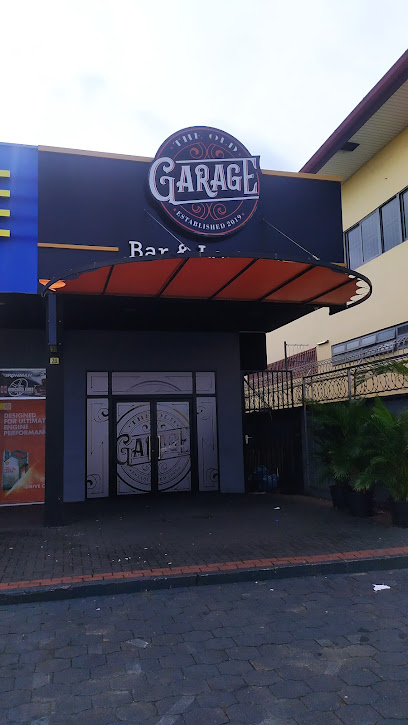
Bar Excellente Suriname
Discover the vibrant nightlife at Bar Excellente in Paramaribo, Suriname - a perfect blend of local culture and lively entertainment.
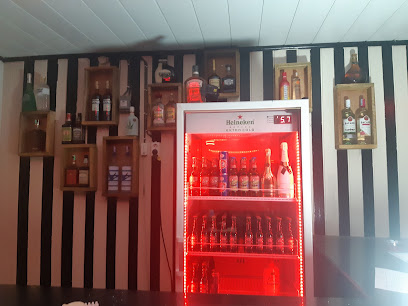
Sportcafe Munder
Dive into the lively scene at Sportcafe Munder, a premier bar in Paramaribo where locals and tourists come together to enjoy drinks and entertainment.
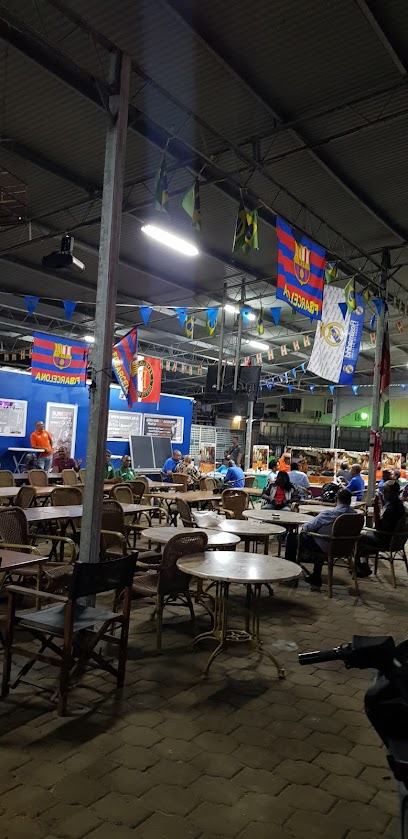
The rooftop
Experience the stunning views and delightful flavors at The Rooftop, a culinary gem in Paramaribo, Suriname.
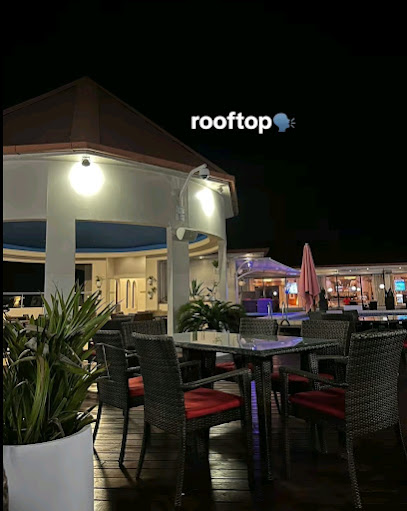
Maracaibo Bar & Lounge
Discover the vibrant nightlife of Paramaribo at Maracaibo Bar & Lounge, where cocktails, music, and great company come together.
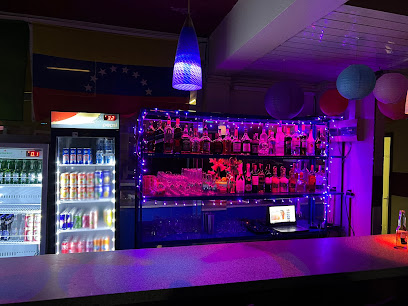
Bar do Bigode
Discover the vibrant nightlife of Paramaribo at Bar do Bigode, where local culture meets a lively atmosphere and delightful drinks.
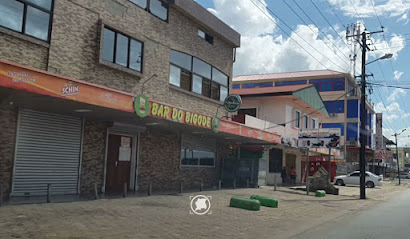
Local Phrases
-
- HelloHoi
[Hoy] - GoodbyeAyo
[A-yo] - YesJa
[Yah] - NoNee
[Nay] - Please/You're welcomeAlstublieft
[Alst-oo-bleeft] - Thank youDankjewel
[Dank-yuh-vel] - Excuse me/SorrySorry
[Sor-ry] - How are you?Hoe gaat het?
[Hoo gat het] - Fine. And you?Goed. En met jou?
[Goot. En met yow] - Do you speak English?Spreek je Engels?
[Sprake yuh Eng-els] - I don't understandIk begrijp het niet
[Ick buh-grayp het neet]
- HelloHoi
-
- I'd like to see the menu, pleaseIk wil graag de menukaart zien, alstublieft
[Ick vil grahg duh menu-kart seen, alst-oo-bleeft] - I don't eat meatIk eet geen vlees
[Ick ayt khain vlays] - Cheers!Proost!
[Prohst] - I would like to pay, pleaseIk wil graag betalen, alstublieft
[Ick vil grahg buh-tah-len, alst-oo-bleeft]
- I'd like to see the menu, pleaseIk wil graag de menukaart zien, alstublieft
-
- Help!Help!
[Help] - Go away!Ga weg!
[Gah vekh] - Call the Police!Bel de politie!
[Bel duh poh-leet-ee] - Call a doctor!Bel een dokter!
[Bel ayn dok-ter] - I'm lostIk ben verdwaald
[Ick ben ver-dwahld] - I'm illIk ben ziek
[Ick ben zeek]
- Help!Help!
-
- I'd like to buy...Ik wil graag kopen...
[Ick vil grahg koh-pen] - I'm just lookingIk ben alleen aan het kijken
[Ick ben all-ain ahn het kee-ken] - How much is it?Hoeveel kost het?
[Hoo-veyl kost het] - That's too expensiveDat is te duur
[Dat is teh duhr] - Can you lower the price?Kunt u de prijs verlagen?
[Koont oo duh price ver-lah-ghen]
- I'd like to buy...Ik wil graag kopen...
-
- What time is it?Hoe laat is het?
[Hoo laht is het] - It's one o'clockHet is een uur
[Het is ayn oor] - Half past (10)Half elf
[Half elf] - MorningOchtend
[Och-tend] - AfternoonMiddag
[Mid-dahg] - EveningAvond
[Ah-vohnd] - YesterdayGisteren
[Gis-ter-en] - TodayVandaag
[Van-dahg] - TomorrowMorgen
[Mor-ghen] - 1Een
[Ayn] - 2Twee
[Tway] - 3Drie
[Dree] - 4Vier
[Veer] - 5Vijf
[Vayf] - 6Zes
[Zes] - 7Zeven
[Zay-ven] - 8Acht
[Akh-t] - 9Negen
[Nay-ghen] - 10Tien
[Teen]
- What time is it?Hoe laat is het?
-
- Where's a/the...?Waar is een/de...?
[Var is ayn/dee] - What's the address?Wat is het adres?
[Vat is het ah-dres] - Can you show me (on the map)?Kunt u mij laten zien (op de kaart)?
[Koont oo may la-ten seen (op duh kaart)] - When's the next (bus)?Wanneer is de volgende (bus)?
[Ven-air is duh vol-hen-duh (bus)] - A ticket (to ....)Een kaartje (naar ....)
[Ayn kahrt-ye (nar ....)]
- Where's a/the...?Waar is een/de...?
History of Paramaribo
-
Paramaribo, the capital city of Suriname, was originally established as a small trading post by the French in the early 17th century. The area was then taken over by the British in 1651, who began to develop it as a plantation colony. The city became the administrative center of the colony, marking the beginning of its rich colonial history.
-
In 1667, the Treaty of Breda concluded the Second Anglo-Dutch War, and Paramaribo, alongside the colony of Suriname, was ceded to the Dutch in exchange for New Amsterdam (modern-day New York). Under Dutch rule, Paramaribo grew rapidly as a port city and commercial hub, attracting settlers from various European nations.
-
During the 18th and 19th centuries, Paramaribo thrived as the center of a booming plantation economy. Sugar, coffee, and cotton plantations proliferated along the Suriname River, largely worked by enslaved Africans. The city's wealth and architecture from this period reflect the prosperity brought by the plantation industry.
-
The abolition of slavery in 1863 was a turning point for Paramaribo. The city saw a significant demographic shift as emancipated slaves, known as 'freedmen,' moved to urban areas. This period also saw the arrival of indentured laborers from British India, Indonesia, and China, further diversifying the city's cultural landscape.
-
Throughout the 20th century, Paramaribo continued to evolve. The city became the epicenter of Suriname's political, economic, and cultural life. Key landmarks such as the Presidential Palace, the Cathedral of St. Peter and Paul, and the Independence Square were constructed, showcasing a blend of colonial and contemporary architectural styles.
-
On November 25, 1975, Suriname gained independence from the Netherlands, with Paramaribo as its capital. This milestone marked a new era of national identity and pride. The city became a symbol of Suriname's sovereignty, hosting celebrations and events that reflect the country's diverse heritage.
-
In 2002, the historic inner city of Paramaribo was designated a UNESCO World Heritage Site. This recognition was due to its well-preserved colonial architecture and unique cultural fusion. Key sites like the Wooden Cathedral and the Synagogue-Mosque Complex highlight Paramaribo's rich historical tapestry and enduring legacy.
-
Today, Paramaribo is a vibrant city that celebrates its multicultural heritage. Festivals, markets, and cultural events reflect the diverse influences that have shaped its history. The city's dynamic atmosphere, combined with its historical significance, makes Paramaribo a fascinating destination for travelers and historians alike.
Paramaribo Essentials
-
Paramaribo is accessible primarily via Johan Adolf Pengel International Airport (PBM), located approximately 45 kilometers south of the city. Direct flights are available from major cities such as Amsterdam and Miami. From the airport, you can reach Paramaribo by taxi, which is the most convenient option, or by shuttle services provided by some hotels.
-
Paramaribo offers various transportation options. Public buses are available but can be irregular; however, they are the most economical choice. Taxis are widely available and can be hailed on the street or booked via phone. Car rentals are another option for those who prefer the flexibility of driving. Additionally, cycling is becoming more popular, with bike rentals available in the city.
-
The official currency is the Surinamese Dollar (SRD). Credit cards are accepted in most hotels, restaurants, and larger shops, but it's advisable to carry cash for smaller establishments and markets. ATMs are widespread in Paramaribo, and you can withdraw SRD using international debit or credit cards.
-
Paramaribo is generally safe for tourists, but it's important to take usual precautions. Avoid walking alone at night in poorly lit areas. Neighborhoods such as Abrabroki and Latour have higher crime rates and should be avoided, particularly after dark. Keep an eye on personal belongings in crowded areas and be cautious of pickpockets.
-
In case of emergency, dial 115 for medical emergencies and 113 for police assistance. Hospitals and clinics are available in Paramaribo, with the Academic Hospital Paramaribo being the largest. It is recommended to have travel insurance that covers medical emergencies. Pharmacies are accessible throughout the city for minor health issues.
-
Fashion: Do dress modestly, especially when visiting religious sites. Avoid overly revealing clothing. Religion: Do respect local customs and traditions, including removing shoes before entering places of worship. Public Transport: Do be patient and respectful, as buses can be crowded. Don’t eat or drink on public transport. Greetings: Do greet people with a friendly 'Goedemorgen' (Good morning) or 'Goedenavond' (Good evening). A handshake is common. Eating & Drinking: Do try local dishes and accept food offerings graciously. Don’t refuse hospitality, as it is considered impolite.
-
To experience Paramaribo like a local, visit the central market where you can purchase fresh produce and local goods. Engage with locals, as they are often friendly and happy to share stories about their culture and history. Don’t miss a visit to the UNESCO World Heritage Sites such as the historic inner city of Paramaribo. For a unique experience, take a boat trip along the Suriname River to see the beauty of the surrounding nature and wildlife.
Trending Landmark in Paramaribo
-
Palmtree Garden
-
Fort Zeelandia
-
Paramaribo Zoo
-
Zus & Zo
-
Paramaribo Central Market
-
Saint-Peter-and-Paul Basilica of Paramaribo
-
Peperpot Nature Park
-
Jules Wijdenbosch Bridge
-
Presidential Palace
-
Jenny Tours
-
Het Koto Museum
-
Neveh Shalom Synagogue
-
Arya Dewaker Mandir
-
Neotropical Butterfly Park
-
André Kamperveen Stadion
Nearby Cities to Paramaribo
-
Things To Do in Mariënburg
-
Things To Do in Lelydorp
-
Things To Do in Moengo
-
Things To Do in Brokopondo
-
Things To Do in Albina
-
Things To Do in Skeldon
-
Things To Do in New Amsterdam
-
Things To Do in Kwakwani
-
Things To Do in Ituni
-
Things To Do in Linden
-
Things To Do in Bartica
-
Things To Do in Anna Regina
-
Things To Do in Lethem
-
Things To Do in Kamarang
-
Things To Do in Sangre Grande













